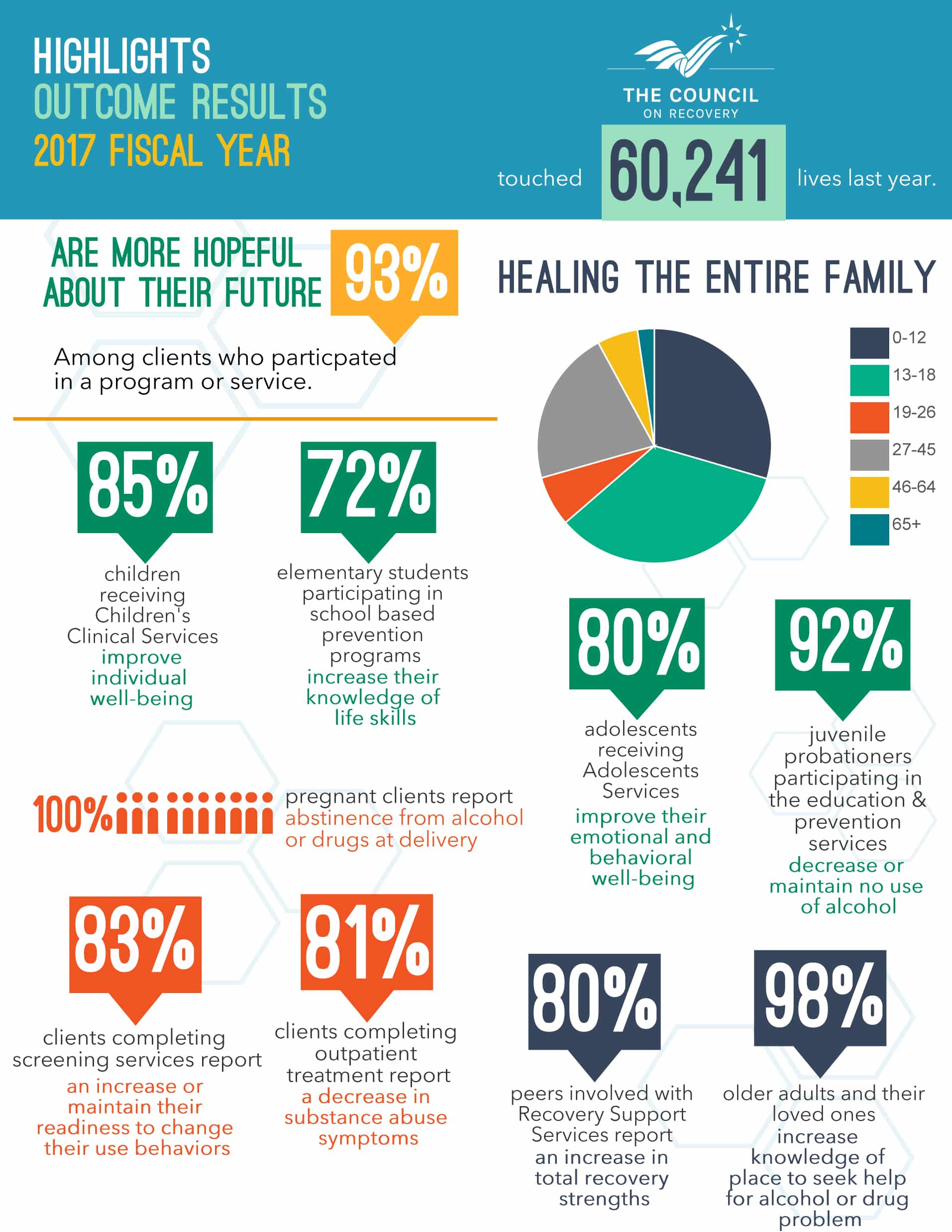The Council on Recovery’s 2017 Outcomes Management Report summarizes the continuously high effectiveness of our programs and services for those adversely affected by alcohol, drugs and related issues. It also reports impressive client satisfaction among the more than 60,000 people we served.

For more information or to receive a copy of the complete report, please contact the report’s author, Jessica Davison, at jdavison@councilonrecovery.org or use the Contact Us form.
